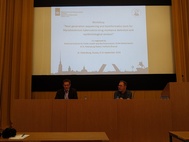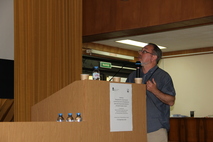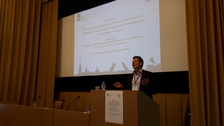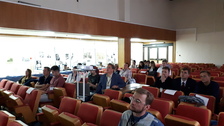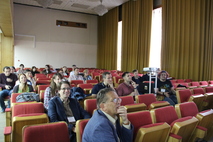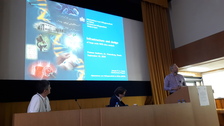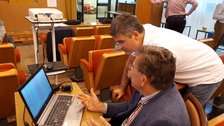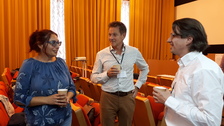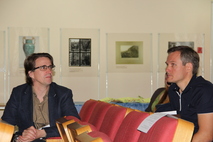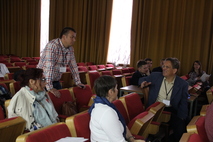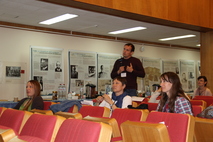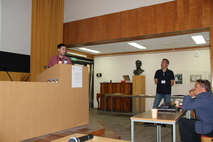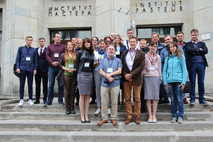International workshop “Next generation sequencing and bioinformatics tools for Mycobacterium tuberculosis drug resistance detection and epidemiological analysis” took place on September 9-10, 2019 in the St. Petersburg Pasteur Institute. It was co-organised by The National Institute for Pubic Health and the Environment (RIVM, Netherlands) and St. Petersburg Pasteur Institute (Russia). The working language was English.
The workshop was co-chaired by Prof. Dick van Soolingen and Dr. Igor Mokrousov; it was attended by scientists, doctors, and students from Russia (St. Petersburg, Moscow, Arkhangelsk, Irkutsk, Yekaterinburg), the Netherlands, Kazakhstan and Bulgaria.
It was noted that Whole Genome Sequencing of Mycobacterium tuberculosis has improved the diagnosis of tuberculosis regarding (sub)species identification, drug susceptibility testing and epidemiological typing. After an extended validation in the international context this technique is now ready for broad implementation to replace multiple other laboratory methods. Over the past two years, RIVM has developed a genomic database of multidrug-resistant tuberculosis strains circulating in Europe through the EuSeqMyTB consortium, initiated by the European Center for Disease Control ECDC.
In Russia, genomic studies on tuberculosis are successfully carried out in several scientific centers, in particular, at the St. Petersburg Pasteur Institute, Engelhardt Institute of Molecular Biology, Federal Center for Physico-Chemical Medicine, Irkutsk Scientific Center for Family Health and Human Reproduction, whose scientists made oral presentations. At the same time, in Russia a relatively widespread use of NGS is significantly limited by the high incidence of tuberculosis, the high proportion of circulating multiresistant strains (and the high workload on primary bacteriological laboratories), and, last not least, by the current national legislation and its implementation, which adversly impact international cooperation of the Russian scientists.
The full program of the workshop with abstracts of presentations - see the PDF file
